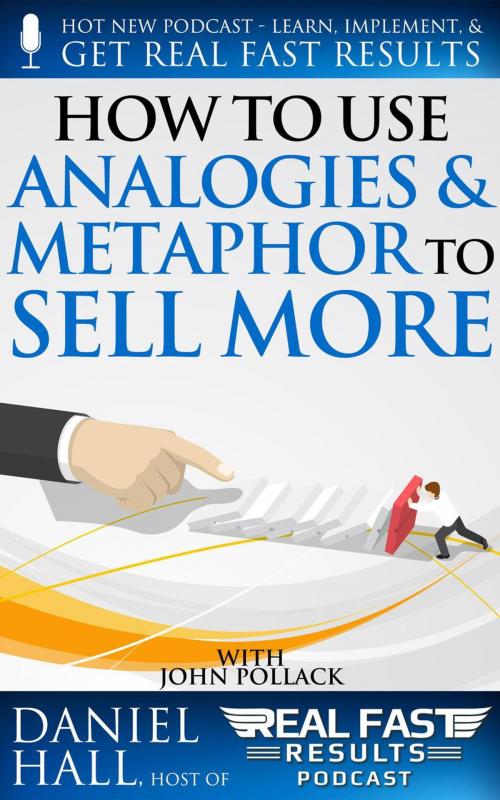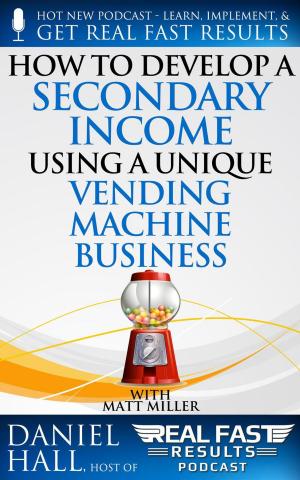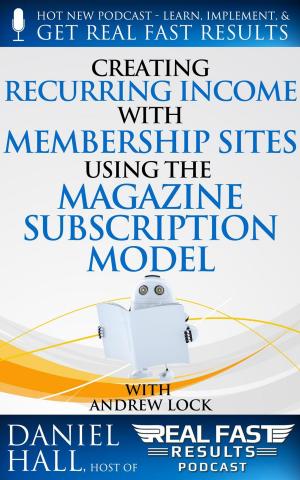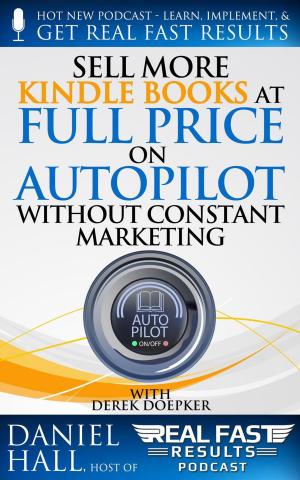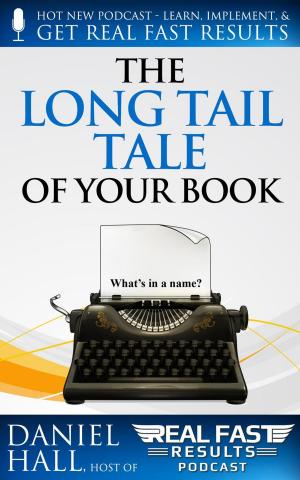How to Use Analogies and Metaphor to Sell More
Real Fast Results, #94
Nonfiction, Reference & Language, Language Arts, Communication, Business & Finance, Marketing & Sales, Sales & Selling| Author: | Daniel Hall | ISBN: | 9781386418771 |
| Publisher: | Daniel Hall | Publication: | July 18, 2018 |
| Imprint: | Language: | English |
| Author: | Daniel Hall |
| ISBN: | 9781386418771 |
| Publisher: | Daniel Hall |
| Publication: | July 18, 2018 |
| Imprint: | |
| Language: | English |
John Pollack is a world-class writer and an expert on the use of language. So, if you are an author or publisher, you are going to gain a lot by reviewing this material. John helps people just like you to tap the full potential of language to reveal truths, articulate ideas, and persuade others to take action.
John's expertise comes from working in the corporate arena and for nonprofits. Additionally, he is a journalist as well as a former Presidential Speechwriter for Bill Clinton, and he has spent more than a decade as a consultant for Fortune 500 companies, nonprofits, and public sector leaders. His proficiency doesn't end there either. John has worked as a speechwriter on Capitol Hill, as a foreign correspondent in Spain, and is known for his work as a project manager at The Henry Ford, which is a museum of American innovation.
Above all else, John is probably most recognized for the empathy and creativity that comes across in his writing. He has a tendency to venture off the beaten path, and this has led him to become more persuasive as a result of the insight and understanding he has gained. Moreover, his world view has grown immensely from working and living in places like Africa, Antarctica, and Europe. He has also hitchhiked across Australia, explored Caucasus, and skippered a boat, which he built out of 165,321 corks, down the Douro River in Portugal. Some of his written works include The Pun Also Rises, Cork Boat, The World on a String, and Shortcut: How Analogies Reveal Connections, Spark Innovation and Sell Our Greatest Ideas. Without further ado, John welcome to the show…
How to Use Analogies to Communicate Better and Persuade More People
I think that we can start by paying attention to all of the analogies around us. I think many people grew up thinking about analogies in their strictest SAT format. "The Kentucky is to horse racing as the Indie 500 is to auto racing." And so, people feel constricted that way. Once you start thinking of analogies more broadly, as a comparison that suggests parallels between two different things, you'll start seeing them in marketing taglines, business models, legal arguments, biblical parables, sports pages. That awareness, learning to cultivate that awareness, will start tuning up your analogical instincts and allow you to put them to work on your own behalf.
John Pollack is a world-class writer and an expert on the use of language. So, if you are an author or publisher, you are going to gain a lot by reviewing this material. John helps people just like you to tap the full potential of language to reveal truths, articulate ideas, and persuade others to take action.
John's expertise comes from working in the corporate arena and for nonprofits. Additionally, he is a journalist as well as a former Presidential Speechwriter for Bill Clinton, and he has spent more than a decade as a consultant for Fortune 500 companies, nonprofits, and public sector leaders. His proficiency doesn't end there either. John has worked as a speechwriter on Capitol Hill, as a foreign correspondent in Spain, and is known for his work as a project manager at The Henry Ford, which is a museum of American innovation.
Above all else, John is probably most recognized for the empathy and creativity that comes across in his writing. He has a tendency to venture off the beaten path, and this has led him to become more persuasive as a result of the insight and understanding he has gained. Moreover, his world view has grown immensely from working and living in places like Africa, Antarctica, and Europe. He has also hitchhiked across Australia, explored Caucasus, and skippered a boat, which he built out of 165,321 corks, down the Douro River in Portugal. Some of his written works include The Pun Also Rises, Cork Boat, The World on a String, and Shortcut: How Analogies Reveal Connections, Spark Innovation and Sell Our Greatest Ideas. Without further ado, John welcome to the show…
How to Use Analogies to Communicate Better and Persuade More People
I think that we can start by paying attention to all of the analogies around us. I think many people grew up thinking about analogies in their strictest SAT format. "The Kentucky is to horse racing as the Indie 500 is to auto racing." And so, people feel constricted that way. Once you start thinking of analogies more broadly, as a comparison that suggests parallels between two different things, you'll start seeing them in marketing taglines, business models, legal arguments, biblical parables, sports pages. That awareness, learning to cultivate that awareness, will start tuning up your analogical instincts and allow you to put them to work on your own behalf.
